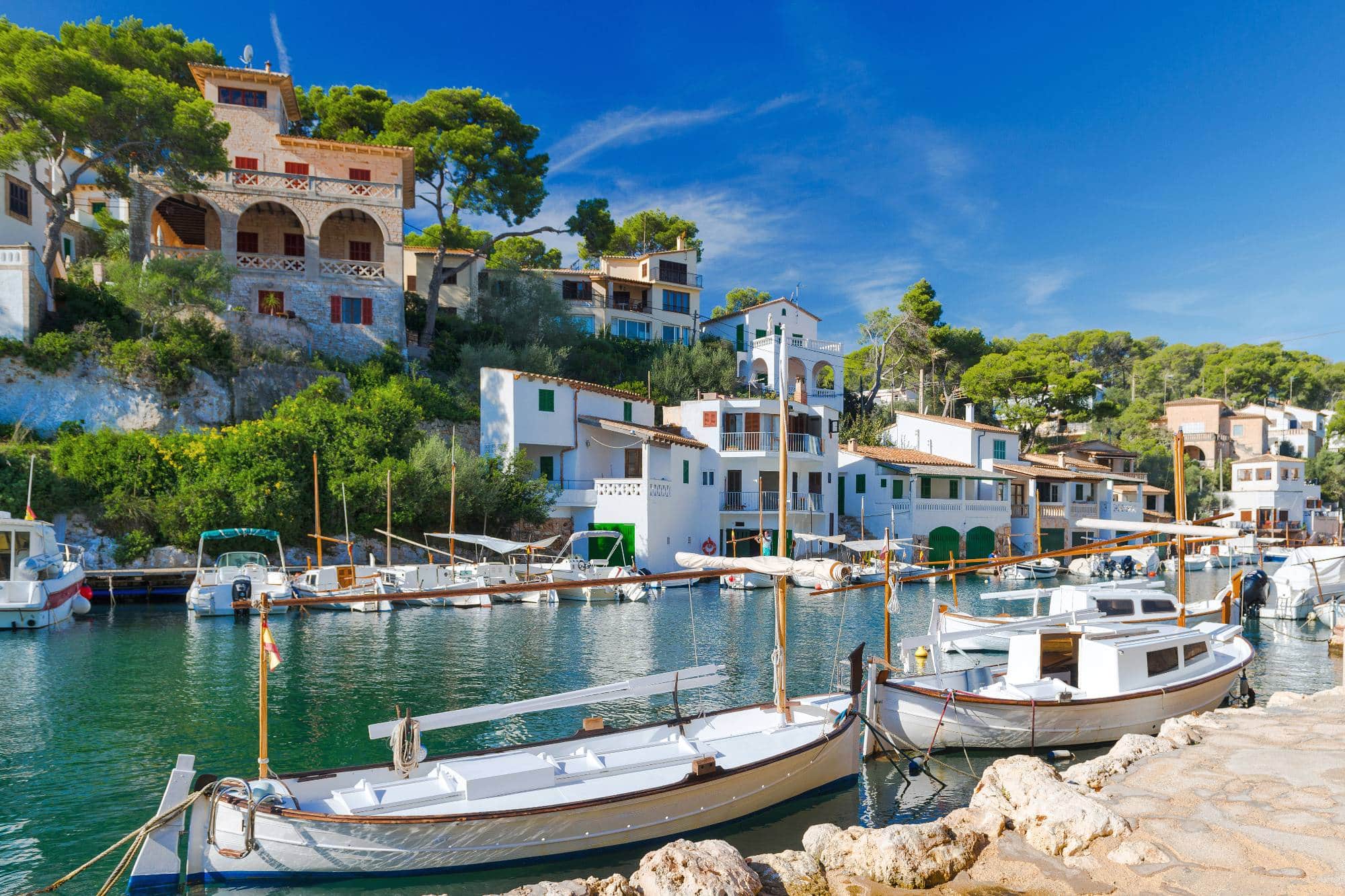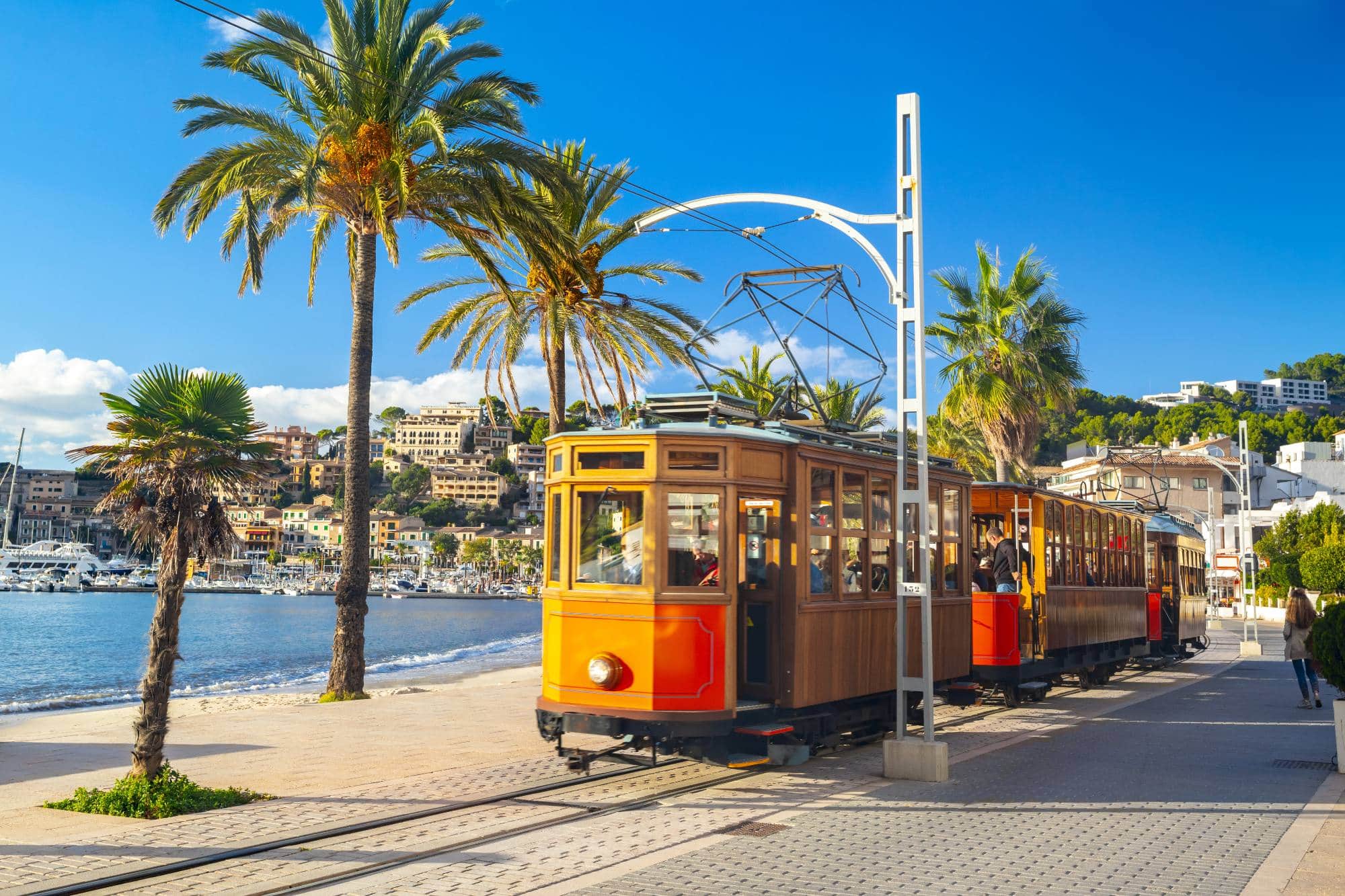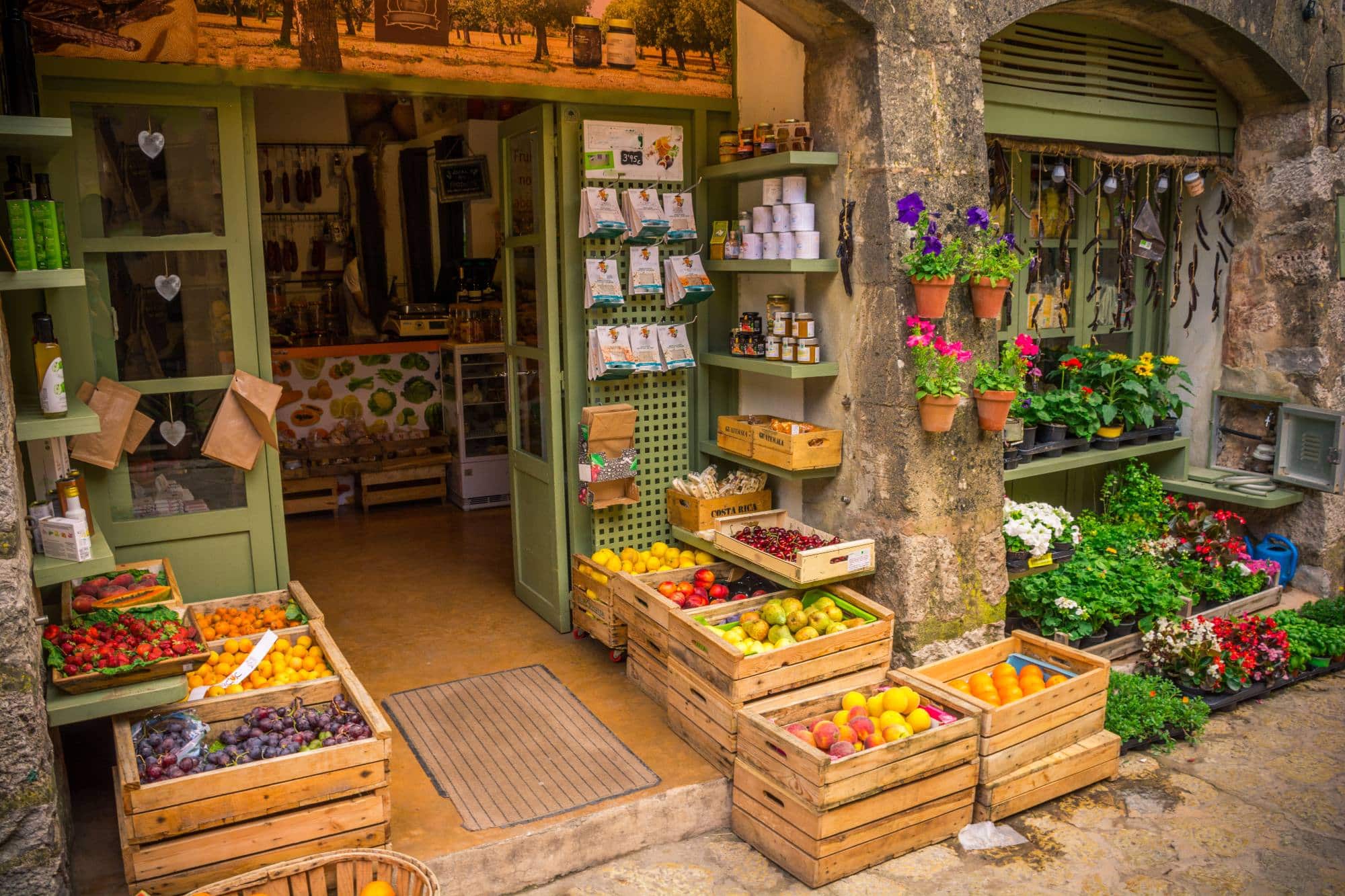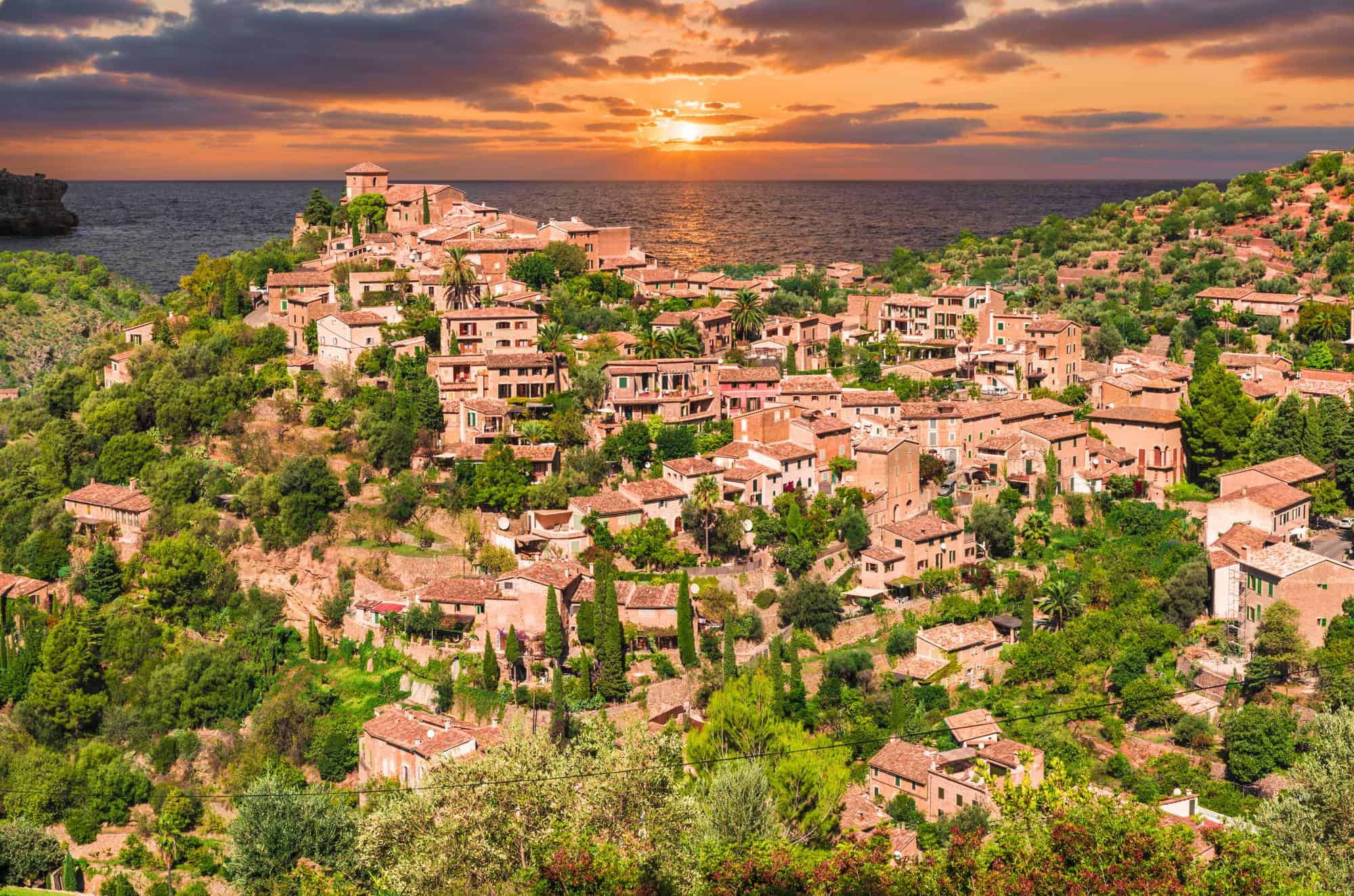Mallorca is a popular Spanish holiday destination thanks to its good weather, good food, and friendly atmosphere. But does that mean it’s suitable as a permanent living destination?
In this article, we’ll cover the important facts about living in Mallorca. We’ll look at the cost of living, the key pros and cons, where to settle down, and other points that might influence your decision.
Secure Peace of Mind with Best-Value International Health Coverage
International Citizens Insurance provide free, no-obligation quotes from the leading international health insurance providers with plans tailored to meet your needs. Trusted by thousands of expats worldwide.
Is Mallorca a good place to live?
Mallorca is a good place to live because it offers all the benefits of a Mediterranean lifestyle, along with stable investment opportunities and interesting history and culture.
It’s the largest of the Balearic Islands, an autonomous community off the Spanish coast. For things like healthcare, currency, residency visas, driving, and more, it follows Spanish rule.
Mallorca has a typical Mediterranean climate that draws in plenty of expats. You’ll find hot summers and mild winters that are perfect for enjoying an outdoor lifestyle. Of course, its extensive coastline is ideal for those into sailing and water sports.
The island has economic stability, both in terms of jobs and housing. Importantly, this means it’s not difficult to find an affordable property and take out a mortgage if you need one. You will find more information on how to buy a property in Spain in our Complete Guide To Buying A Property In Spain.
As you’d expect from a popular tourist destination, there’s plenty to do in Mallorca. It has annual music and art festivals, lots of sports tournaments, and interesting local architecture. In short, you won’t be short of things to do here.
Is it safe to live in Mallorca?
Yes, Mallorca is a generally safe place to live with low rates of crime. Of course, there are greater concerns during the tourist season, as is the case with any popular destination. But, even during peak times, its crime rate is low.

Mallorca’s crime rate is low to moderate in various areas. Things like theft and burglary are rare, which is important for anywhere you’re thinking of settling down.
You also don’t need to worry about things like drug-related crime or assault, regardless of whether you live in a city or rural area.
In short, crime in Mallorca shouldn’t be a concern when considering it as a place to live. You’ll be able to relax at home, and the sense of community you’ll build with your neighbors means you’ll even be able to leave your doors unlocked!
Is it expensive to live in Mallorca?
Although an autonomous community, the cost of living in Mallorca is similar to the cost of living in mainland Spain. In short, this means it’s inexpensive. A couple could live on €1,200 a month in Mallorca, excluding rent.
Eating out will set you back around €15 per person at an inexpensive restaurant, although this rises to €25 per person at a mid-range restaurant. Luckily, local beer and wine are inexpensive and bars are plentiful.
Grocery shopping is cheap, and you can buy your fresh vegetables at one of the island’s numerous farmers’ markets. Most of these stock meat and cheese, too, meaning you can do most of your shopping there.
Basic utilities for a two-bedroom apartment would set you back around €115 a month, and internet access from a typical provider is around €45 a month.
Public transport is inexpensive, but petrol prices are slightly above those of mainland Europe. This is simply to compensate for the extra transportation costs.
Finally, rent and property prices are very attractive for expats. Rent for a central, three-bedroom apartment is around €1,400 a month but will be obviously cheaper in smaller towns. Property costs roughly €4,000 per square meter in the center of Palma.
Renting rules and laws in Spain might differ from what you are used to in your home country. To rent safely and avoid disappointment, read our guide Renting a Property in Spain? How to do it the right way
But, elsewhere on the island, you can find some incredible (and fairly pricey) properties. Spending a few million will get you a nine-bedroom finca (country estate) with plenty of land.
In short, living in Mallorca can be as expensive as you want it to be. Basic necessities aren’t costly, and a retired couple could live very comfortably on less than €1,500 a month. If you have the money, though, Mallorca has the lifestyle you’re looking for.
Living in Mallorca: the pros and cons
It’s always worth trying to build up a complete picture of an area before moving there. While visiting is helpful, it can only tell you so much about permanent residency.

Weighing up both sides is worthwhile when thinking about living in Mallorca. Here are the main pros and cons that it presents.
The pros of living in Mallorca
1. The climate
This almost goes without saying, but many expats choose Mallorca because of its climate. It’s not too hot, and winters offer some rain, which can be a blessing in the Mediterranean.
2. Plenty of activities
Mallorca is a dream for those who like being outdoors. There are hiking and cycling routes, golf courses, fishing opportunities, and of course, swimming and sailing.
3. International connections
One advantage of a tourist-heavy location is its international connections. Palma de Mallorca Airport offers flights to most of mainland Europe. If you can’t fly there directly, a one-hour flight to Barcelona or Madrid offers great connections.
4. Great food
Whether you choose to eat out or cook at home, there’s no shortage of great dishes and ingredients. Of course, Spanish cuisine is a massive influence, and we all know the benefits a Mediterranean diet can offer.

5. Economic security
Mallorca has a stable economy, which means job opportunities and secure real estate. While you might not be looking for employment, the knock-on effect is better public transport and infrastructure and a generally happier and more affluent community.
The cons of living in Mallorca
1. Island life
Living on an island does present some restrictions. Taking your car on holiday bumps the price up considerably, and it obviously will impact moving here too. Mallorca isn’t a tiny island, but some might find it a bit claustrophobic later down the line.
2. Typical bureaucracy
As we discuss in our Living In Spain guide, the country is notorious for bureaucracy. The same is true for Mallorca. Be prepared for lots of paperwork and lengthy processes, from opening your Spanish bank account to sorting out your Spanish taxes. If you feel stuck, use gestors - they can be a great help.
3. Learning the language(s)
Majorcans speak Castellano (Spanish) and Mallorquin (a dialect of Catalan). While many people in busier towns speak English, getting to grips with the island’s specific dialect will help.
4. Humidity
The Mediterranean climate is great, but heat and proximity to the sea mean one thing: humidity. This is the case all year round, but in the winter, you also have rain mixed in. So, be prepared for a bit of dampness.
5. Cars are expensive
If you are planning to buy a car in Mallorca, you might find the prices are quite high for both new and used cars. Taking your own car over to Portugal and re-registering it won't come cheap either. However, if having a car is a must for you (and for many expats in Mallorca, it is), many say buying locally is easier.
Find more information on Spanish driving regulations and the car registration process in our guide, Sorting Out A Car And Driving In Spain.
Where do expats live in Mallorca?
Expats living in Mallorca typically congregate around a few main destinations. The most popular coastal areas include Puerta Portals, Santa Ponsa, Portals Nous, and Bendinat. You’ll find English is widely spoken in these locations.
If you want a rural destination and expat connections, places like Deia, the Soller Valley, and Pollenca are your best bets. These give you a combination of rural living and accessible amenities.
Mallorca's best towns & villages
Mallorca offers a great number of desirable towns and cities as destinations for expats. Depending on the lifestyle you’re after, you can choose from rural locations or more urban areas.
Here are some of the highlights of where to live in Mallorca:
Palma
Palma is Mallorca’s capital city, and so carries the usual connotations you’d expect. Life is busier, but services are more accessible. Also, property prices are higher here, and you won’t get anywhere near as much land as you would in more rural places.
Deia
Deia is a small village on the northern coast of Mallorca. It’s known to attract artists, writers, and other creatives because of its laid-back, bohemian vibe.

Deia has access to some great hiking routes and houses cute boutiques. Deia was once home to the likes of Mick Jagger and Mark Knopfler, so be on the lookout for some stars.
Son Vida
Son Vida is a very rural area but is also one of the most exclusive. You’ll find high-end villas and estates nestled amongst acres of private land. If you’ve got a bit of extra cash, this could be the place for you.
Puerto Portals
Puerto Portals is in the Bay of Palma, meaning you have access to Palma’s amenities without city living. It’s ideal for boat owners, as the town centers on a marina. Combine this with winding streets and designer boutiques, and you have a very desirable place to live.
Living in Mallorca in winter
Living in Mallorca in winter might take some getting used to, but it’s not all bad. Granted, it rains, but the temperature remains quite warm. You can expect absolute lows of 8 degrees C, but the typical average is a balmy 14.
If you’re the outdoor type, the weather is ideal for hiking and cycling. Plus, you have the added advantage of no summer crowds, meaning the beaches are almost exclusively yours.
Mallorca hosts lots of events over the winter. You have typical Christmas activities, including German and Swedish markets and a few festivals. Overall, living in Mallorca in winter gives you a chance to experience the island for real rather than its tourist-focused image.
Residency in Mallorca for non-EU nationals
As we mentioned at the beginning of this guide, Mallorca follows Spanish rules for things like admin and immigration. This means if you are a non-EU citizen you’ll need to fulfil Spanish requirements for residency.
The most popular routes for non-EU citizens are a Non-Lucrative visa and Golden Visa.
While a Non-Lucrative visa is perfect for permanent retirement, the Golden Visa route gives you more flexibility in terms of deciding whether you want to become a tax resident in Spain or not.
If you have questions or need more information about your Golden Visa investment options in the area, contact us via our page on Residency and Citizenship. We will be happy to help.
Final thoughts on living in Mallorca
Mallorca is a good choice for those wanting a combination of island living and a Spanish lifestyle. If you love the outdoors and the sea, Mallorca might be the place for you.
It’s definitely worth spending some time in the country (particularly in the offseason) to get a feel for living there permanently.
Regardless, Mallorca has plenty to offer expats looking for a relaxed but stable pace of life.
Other popular locations in Spain to consider:
- Living In Murcia And The Costa Cálida As An Expat
- 10 Must-Know Facts About Living In Granada, Spain
- Living In The Canary Islands: The Pros & Cons For Expats
- Living On The Costa Blanca In The Province Of Alicante
- What’s It Like Living In Estepona As An Expat?
You might find useful:
- Living In Spain – the ultimate relocation guide full of practical information and tips on moving to Spain, from the pros and cons of visas and residency to the cost of living, healthcare, banking, and more.
- Best Places To Live In Spain – the best and most popular expat locations in Spain.
- 10 Tips To Make Retiring To Spain An Absolute Success - focus on the most important aspects of your relocation to ensure your move to Spain is successful.
- Didn’t find what you were looking for or need further advice? Comment with your question below, and we will do our best to help.
Helpful external links:
- The ten best public schools in Palma De Mallorca, Balearic Islands - Micole.
- Public transport in Mallorca, tickets, planning and information - tib.org.
- Visa and entry requirements for Mallorca - Palma Airport Info
- The Palma de Mallorca US Consular Agency - eu.usembassy.gov.
- The British Consulate in Palma de Mallorca - www.gov.uk
Secure Peace of Mind with Best-Value International Health Coverage
International Citizens Insurance provide free, no-obligation quotes from the leading international health insurance providers with plans tailored to meet your needs. Trusted by thousands of expats worldwide.




